Full text
PDF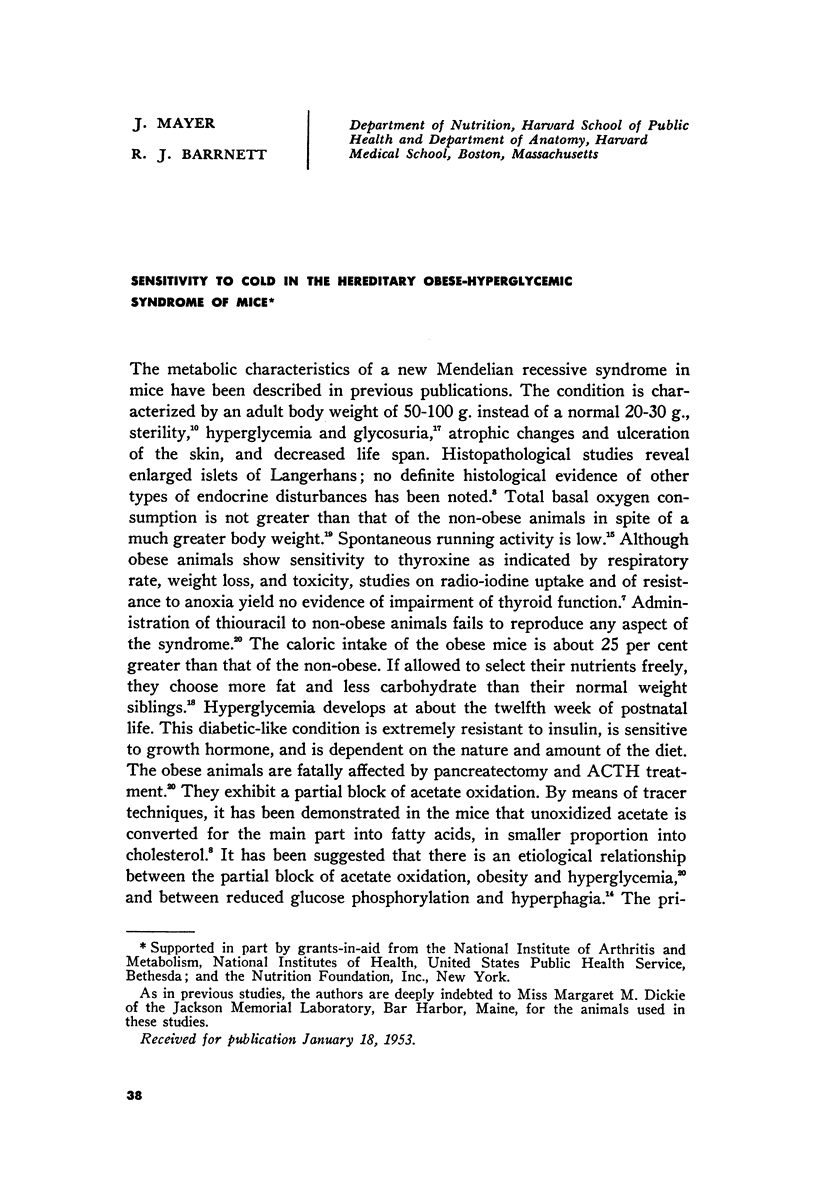
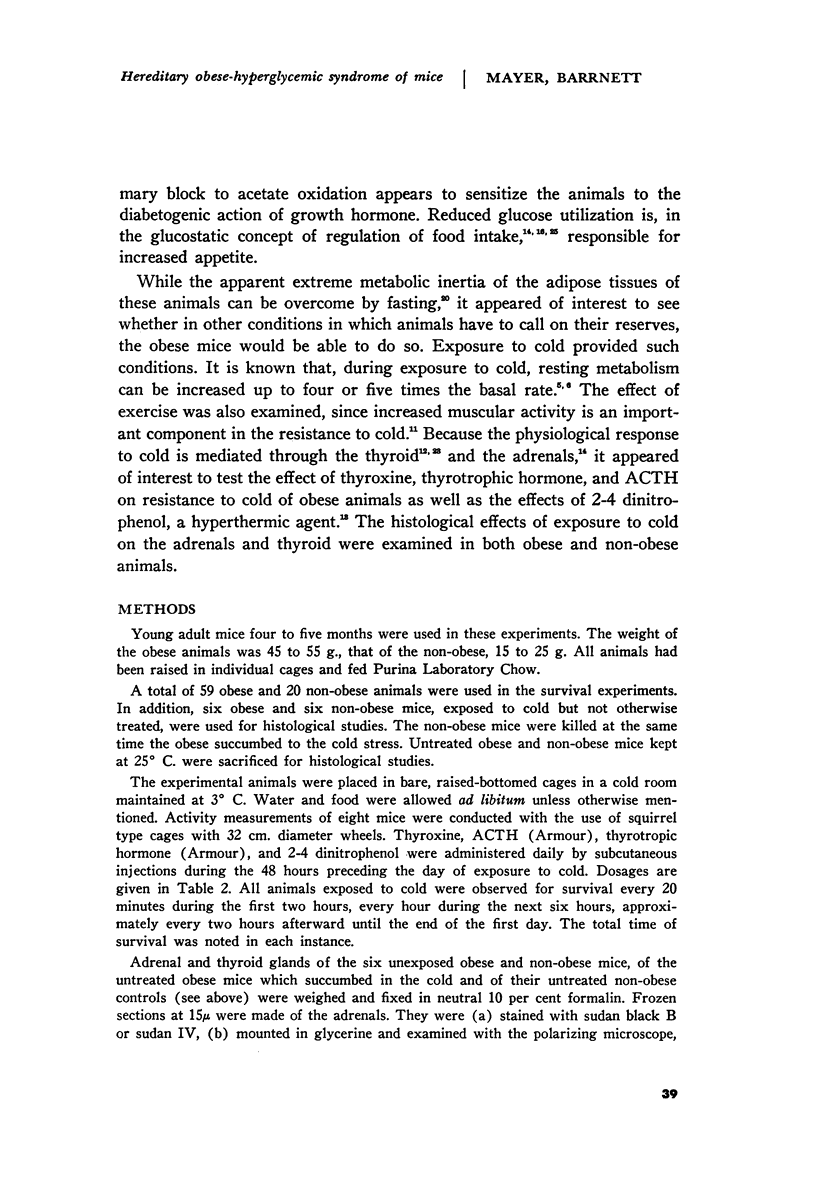
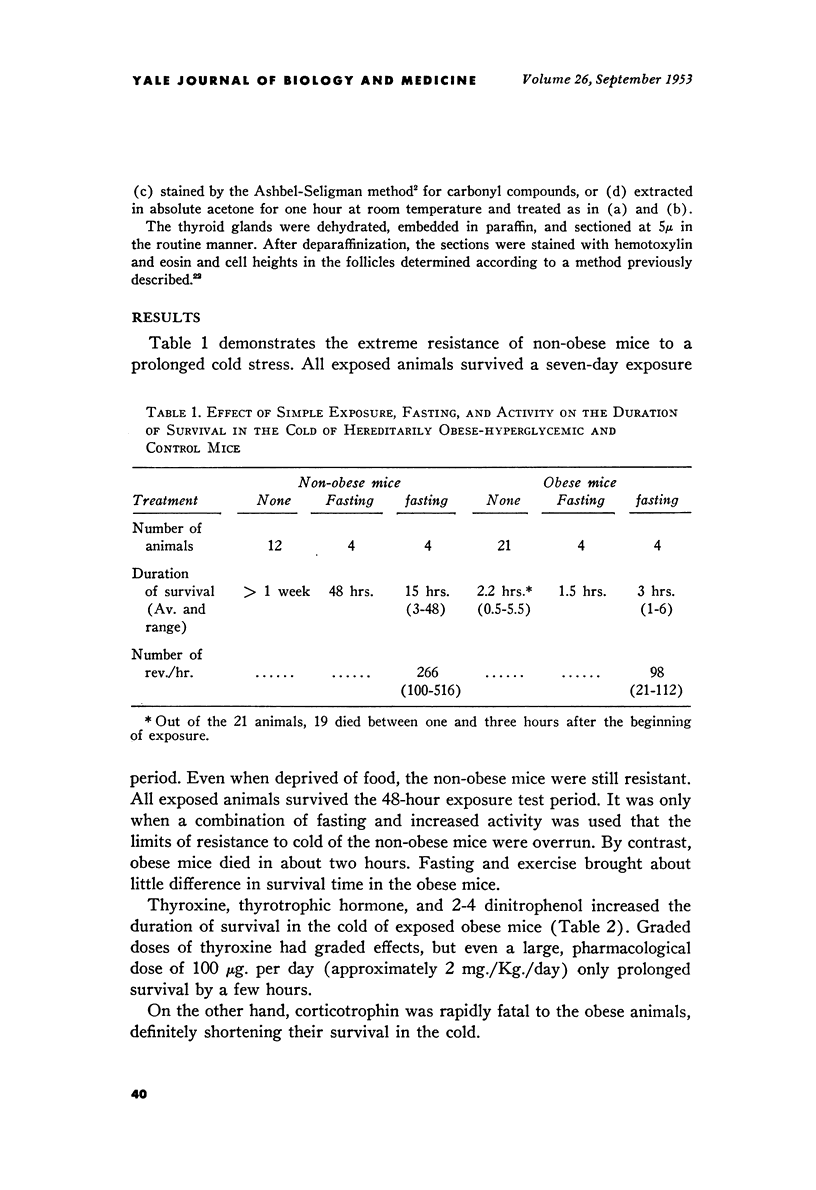
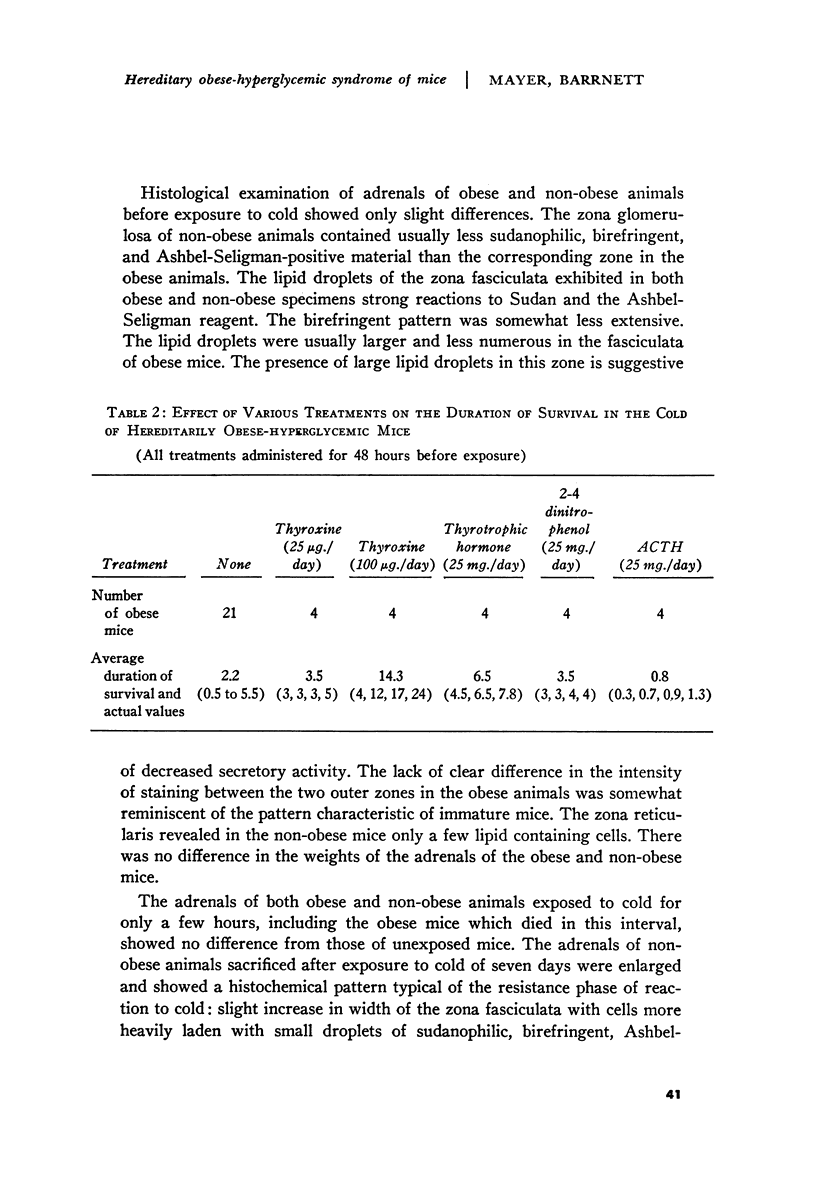
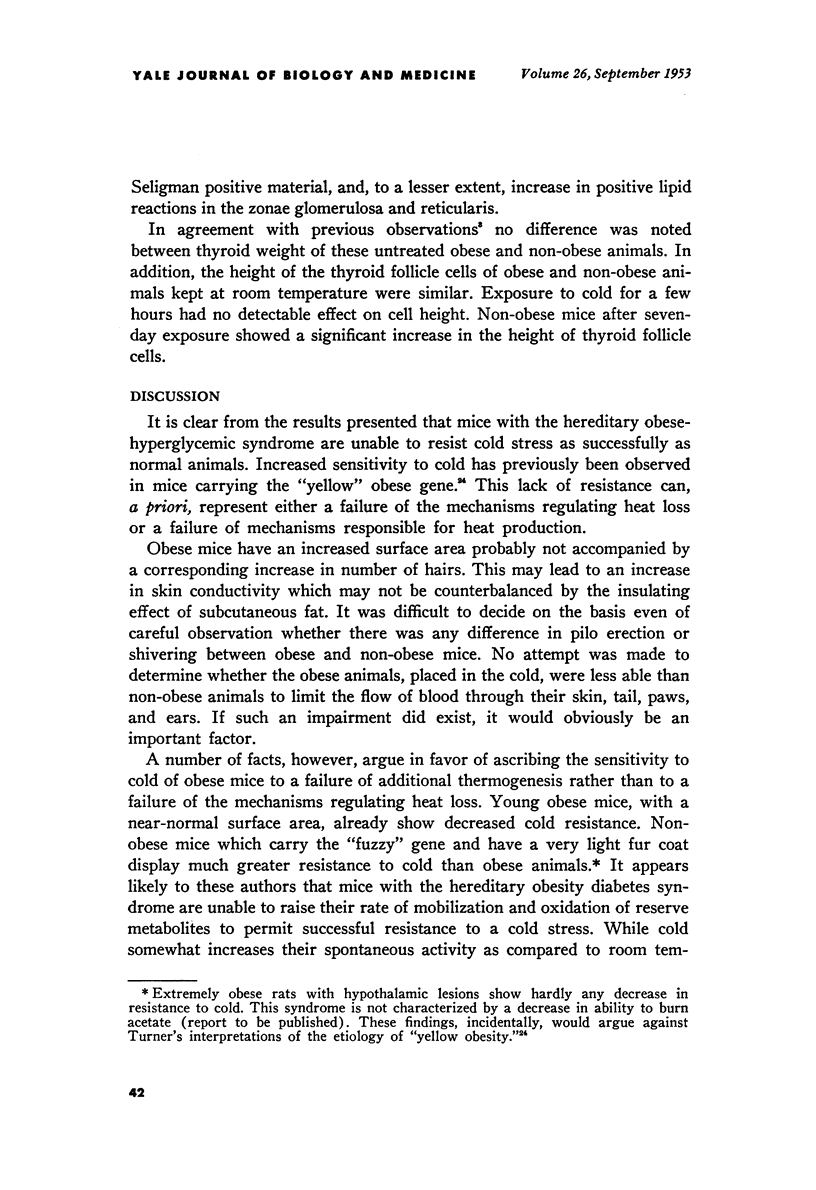
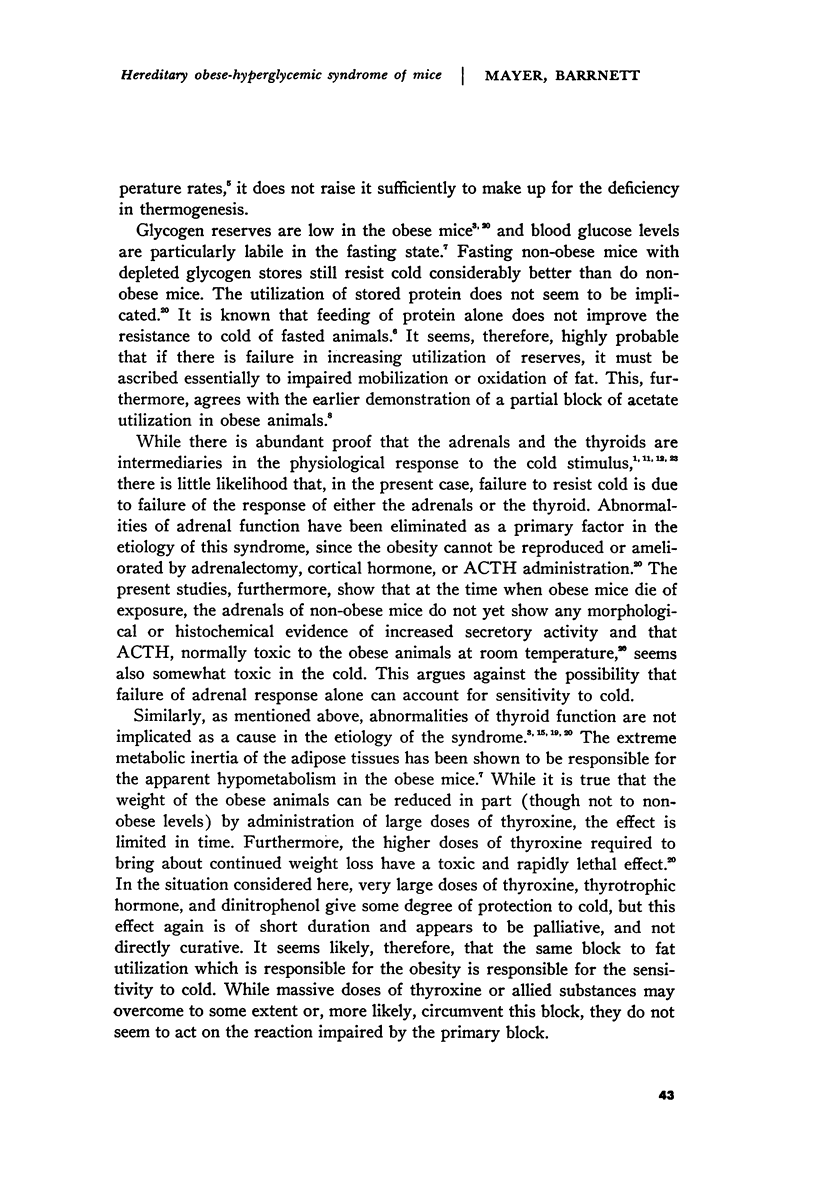
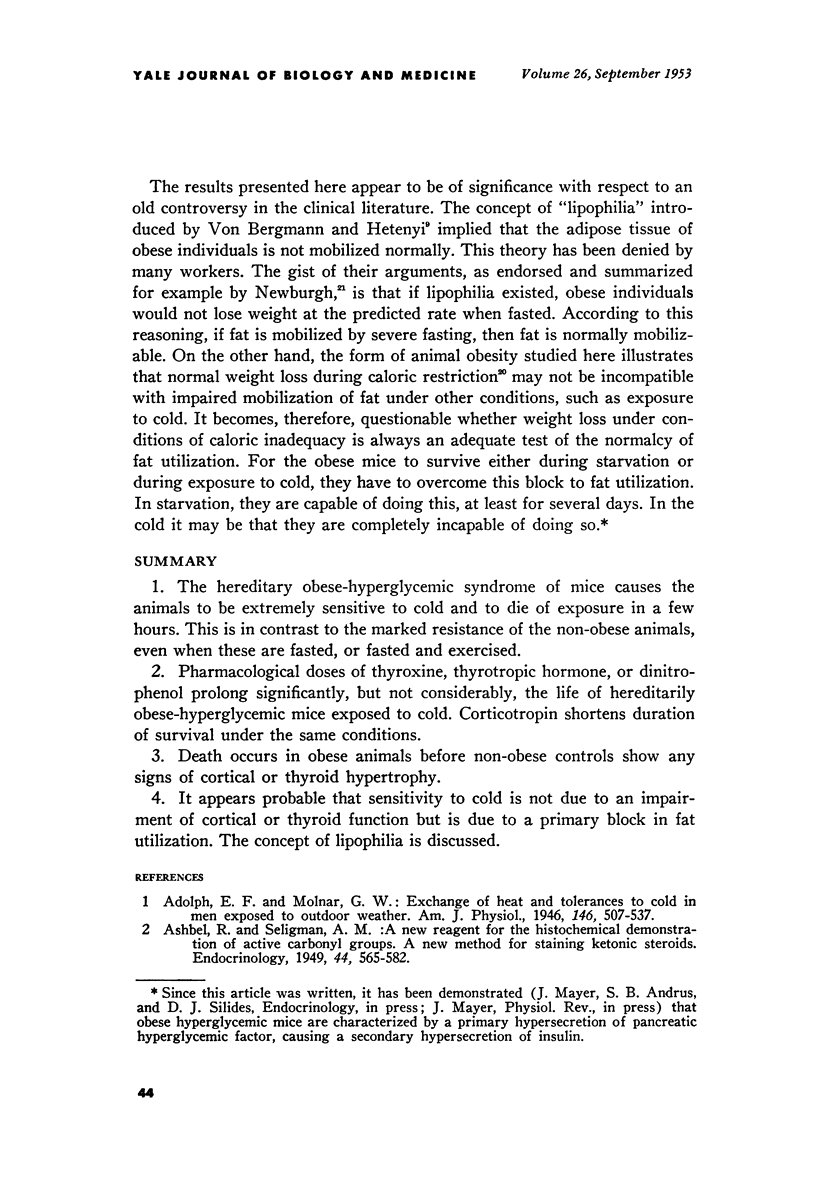
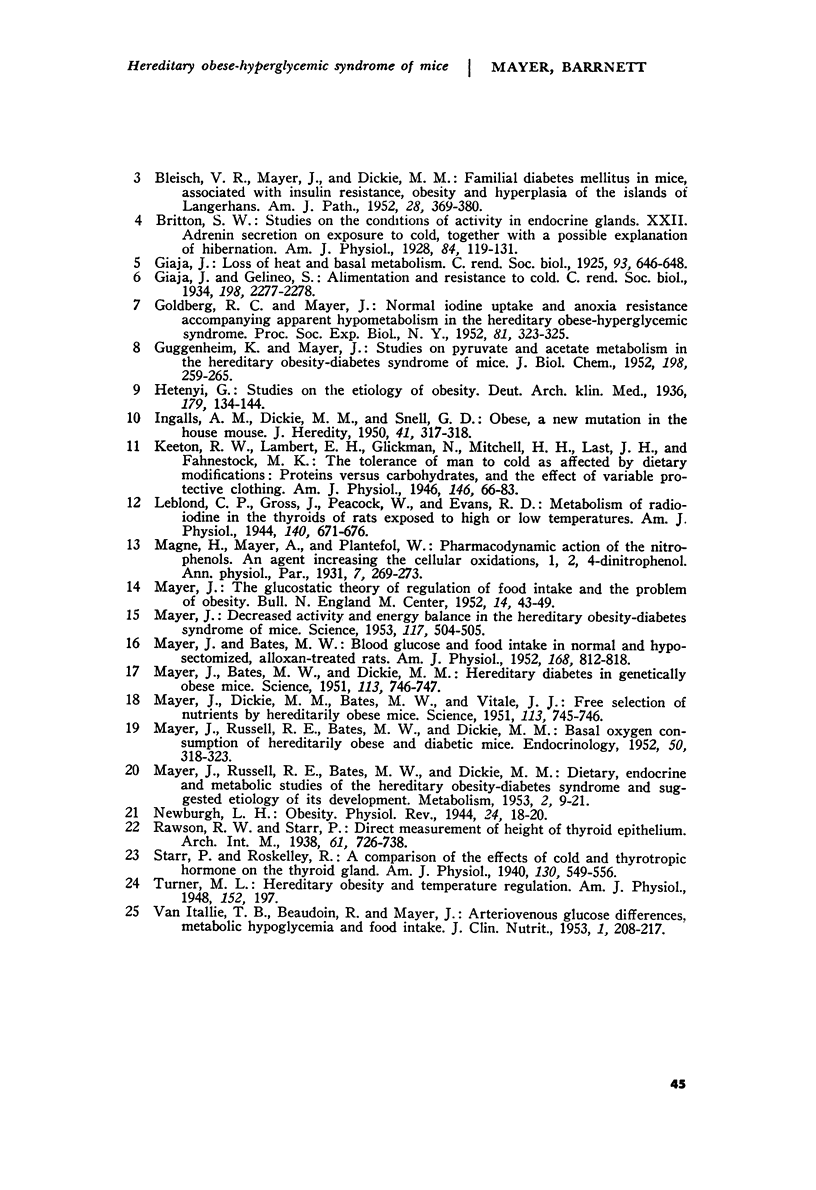
Selected References
These references are in PubMed. This may not be the complete list of references from this article.
- ASHBEL R., SELIGMAN A. M. A new reagent for the histochemical demonstration of active carbonyl groups; a new method for staining ketonic steroids. Endocrinology. 1949 Jun;44(6):565–583. doi: 10.1210/endo-44-6-565. [DOI] [PubMed] [Google Scholar]
- BLEISCH V. R., MAYER J., DICKIE M. M. Familial diabetes mellitus in mice, associated with insulin resistance, obesity, and hyperplasia of the islands of langerhans. Am J Pathol. 1952 May-Jun;28(3):369–385. [PMC free article] [PubMed] [Google Scholar]
- GOLDBERG R. C., MAYER J. Normal iodine uptake and anoxia resistance accompanying apparent hypometabolism in hereditary obese-hyperglycemic syndrome. Proc Soc Exp Biol Med. 1952 Oct;81(1):323–325. doi: 10.3181/00379727-81-19865. [DOI] [PubMed] [Google Scholar]
- GUGGENHEIM K., MAYER J. Studies of pyruvate and acetate metabolism in the hereditary obesity-diabetes syndrome of mice. J Biol Chem. 1952 Sep;198(1):259–265. [PubMed] [Google Scholar]
- INGALLS A. M., DICKIE M. M., SNELL G. D. Obese, a new mutation in the house mouse. J Hered. 1950 Dec;41(12):317–318. doi: 10.1093/oxfordjournals.jhered.a106073. [DOI] [PubMed] [Google Scholar]
- MAYER J., BATES M. W. Blood glucose and food intake in normal and hypophysectomized, alloxan-treated rats. Am J Physiol. 1952 Mar;168(3):812–819. doi: 10.1152/ajplegacy.1952.168.3.812. [DOI] [PubMed] [Google Scholar]
- MAYER J., BATES M. W., DICKIE M. M. Hereditary diabetes in genetically obese mice. Science. 1951 Jun 29;113(2948):746–747. doi: 10.1126/science.113.2948.746. [DOI] [PubMed] [Google Scholar]
- MAYER J., DICKIE M. M., BATES M. W., VITALE J. J. Free selection of nutrients by hereditarily obese mice. Science. 1951 Jun 29;113(2948):745–746. doi: 10.1126/science.113.2948.745-a. [DOI] [PubMed] [Google Scholar]
- MAYER J. Decreased activity and energy balance in the hereditary obesity-diabetes syndrome of mice. Science. 1953 May 8;117(3045):504–505. doi: 10.1126/science.117.3045.504. [DOI] [PubMed] [Google Scholar]
- MAYER J., RUSSELL R. E., BATES M. W., DICKIE M. M. Basal oxygen consumption of hereditarily obese and diabetic mice. Endocrinology. 1952 Mar;50(3):318–323. doi: 10.1210/endo-50-3-318. [DOI] [PubMed] [Google Scholar]
- MAYER J., RUSSELL R. E., BATES M. W., DICKIE M. M. Metabolic, nutritional and endocrine studies of the hereditary obesity-diabetes syndrome of mice and mechanism of its development. Metabolism. 1953 Jan;2(1):9–21. [PubMed] [Google Scholar]
- MAYER J. The glucostatic theory of regulation of food intake and the problem of obesity. Bull New Engl Med Cent. 1952 Apr-Jun;14(2):43–49. [PubMed] [Google Scholar]
- TURNER M. L. Hereditary obesity and temperature regulation. Am J Physiol. 1948 Jan 1;152(1):197–204. doi: 10.1152/ajplegacy.1947.152.1.197. [DOI] [PubMed] [Google Scholar]
- VAN ITALLIE T. B., BEAUDOIN R., MAYER J. Arteriovenous glucose differences, metabolic hypoglycemia and food intake in man. J Clin Nutr. 1953 Mar-Apr;1(3):208–217. doi: 10.1093/ajcn/1.3.208. [DOI] [PubMed] [Google Scholar]


